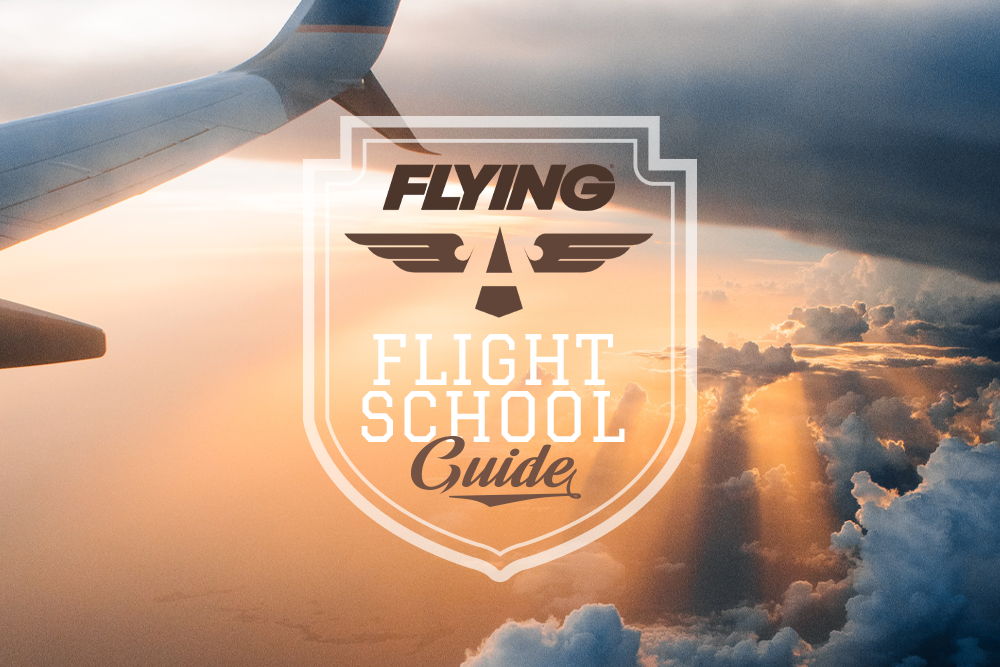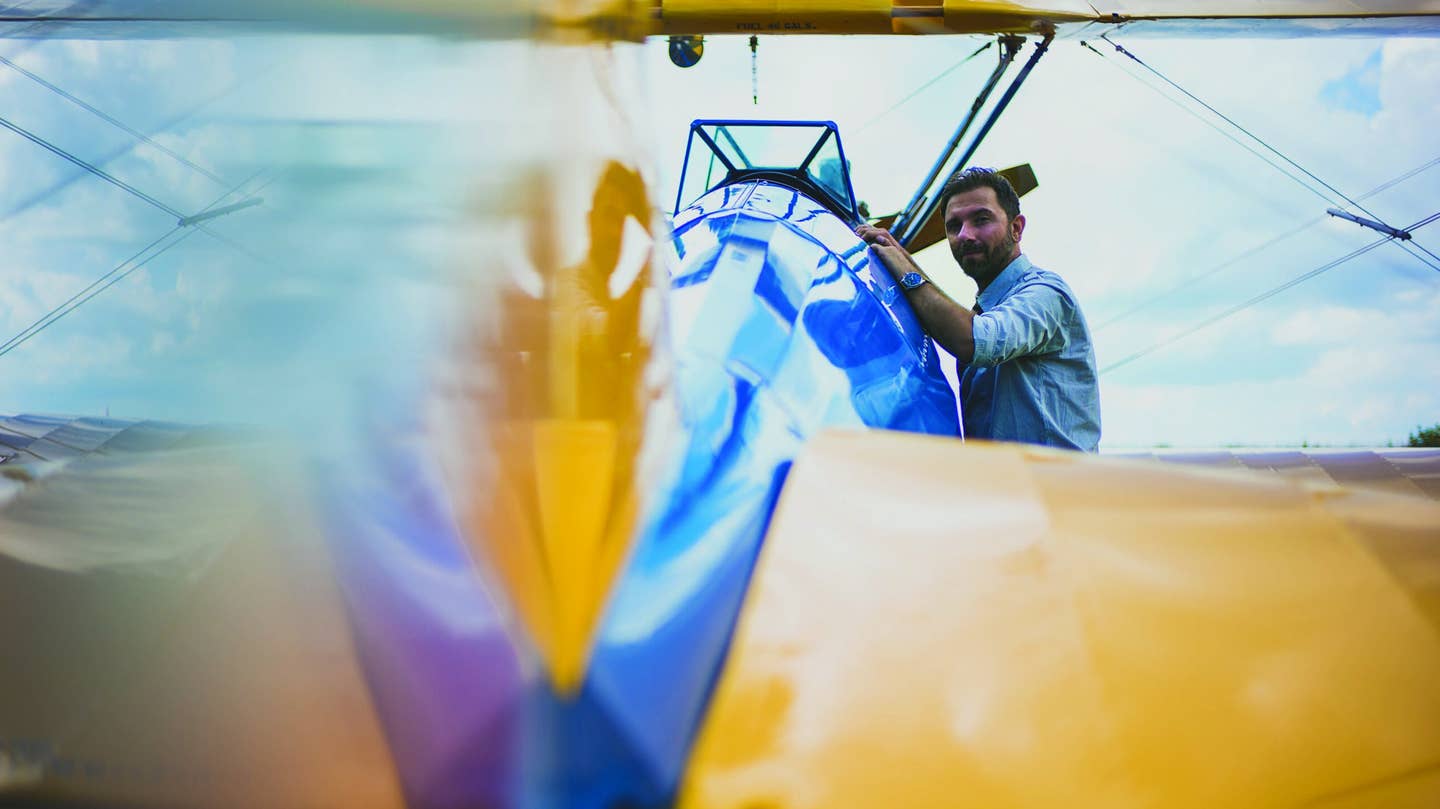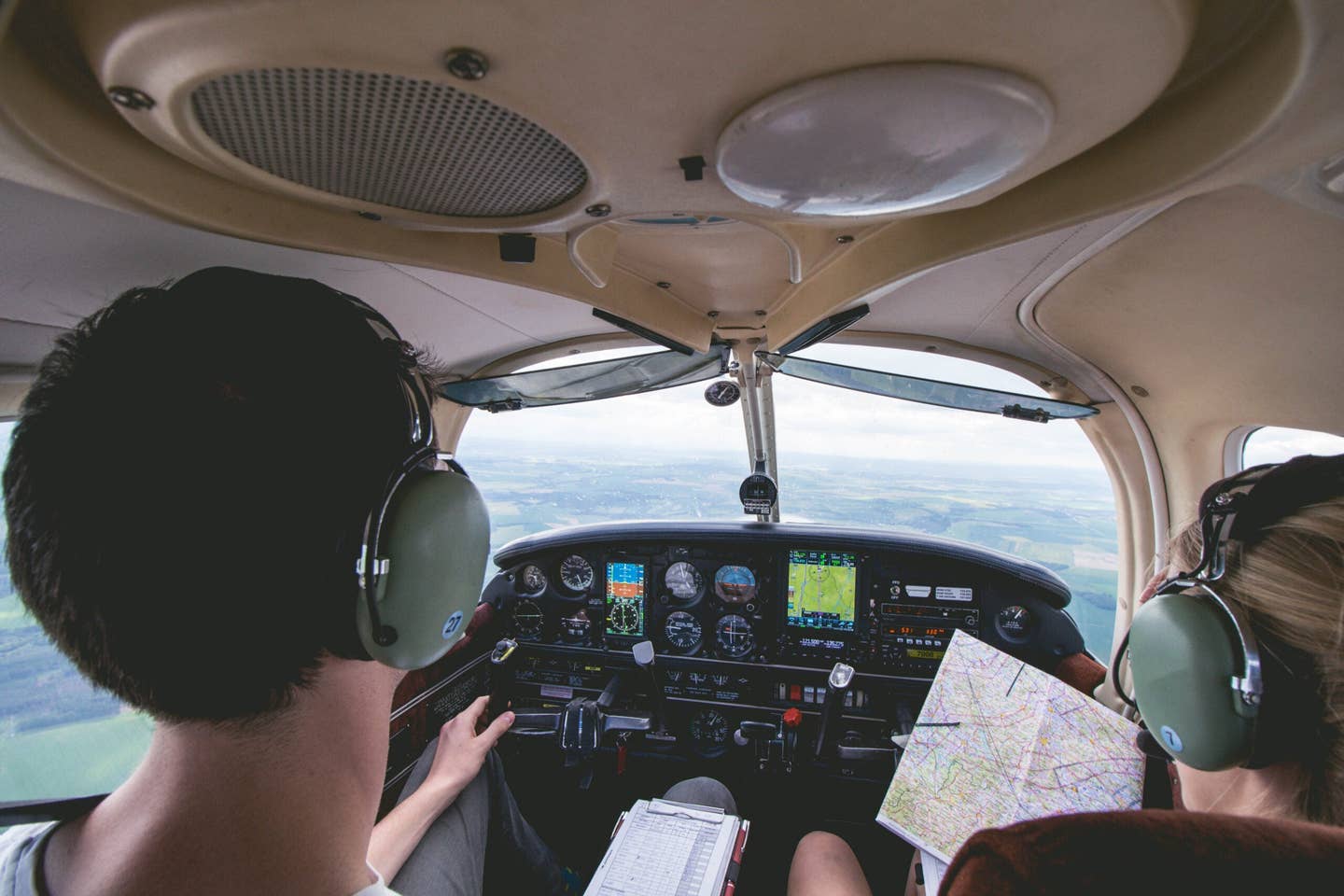Introducing FLYING’s Flight School Guide
New online tool provides everything a potential student needs to pick the right flight school, college, or university program for them.

[Illustration by Amy Jo Sledge]
So you have decided to become an aviation professional and whether that means being a skilled airframe and powerplant mechanic or an airline pilot, finding the right school or program for training can be an incredibly daunting task. To help navigate the long list of aviation schools, we’ve created FLYING’s Flight School Guide, a one-stop guide for all things aviation education.
Factors in Decision Making
Each student has a vision of what they want a school to look like. For some, that means a large university with Division 1 football games to attend on the weekends, but for others an accelerated program leading to a career in as little as 12 months is the right track.
In this guide, we have broken down each flight training program to provide a look into the overall experience.
To help you make the best decision, we’ve gathered information and ranked each program in five categories.
- Career Partnerships
- Value
- Campus Life
- Fleet
- Facilities/Location
Career Partnerships
Agreements with aviation companies help students get a jump start to their career before they graduate. Because of the value that industry partners bring, organizations were ranked based on the number of partnerships they have.
- Zero partners = 5 points
- One partner = 6 points
- Two partners = 7 points
- Three partners = 8 points
- Four partners = 9 points
- Five or more partners = 10 points
Value
Learning to fly, especially in conjunction with pursuing a degree, can be very expensive. Most affordable programs may be more attractive to prospective students. The rankings for value are based on academic and flight costs added together and do not factor in any scholarships or financial aid.
- More than $300k = 2 points
- $250-$300k = 4 points
- $200-$250k = 5 points
- $150-$200k = 6 points
- $130-$150k = 7 points
- $100-$130k = 8 points
- $80-$100k = 9 points
- <$80k = 10 points
Fleet
Every flight school either owns/operates or partners to provide a fleet of aircraft for students to utilize in their flight training. While the fundamentals of flying are similar in all aircraft types, up-to-date fleets and similar platforms when transitioning can all play a role in how long a student stays in the program, the investment they put into training, and overall convenience.
Points were given according to how many airframe types a school offers:
- One airframe type (no multiengine) = 5 points
- Two airframe types = 7 points
- Three airframe types = 8 points
- Four airframe types = 9 points
- – 1 point if they are opposite wings (low-wing vs high-wing)
- + 1 for rotor-wing
- Bonus point for new fleet or up to date fleet
Campus Life
Students who attend a college or university for flight training may want to experience traditional college life as part of their education. Some schools offer full college living with sports and clubs, while others offer a simpler menu. Accelerated flight training organizations with no degree attachment were not ranked on campus life.
Schools received one point each for:
- Campus housing
- Sports (+2 for D1)
- Clubs and organizations
- Greek life
- Volunteer opportunities
- Internship opportunities
- NIFA membership
- Recreational facilities
Facilities/Location
For flight students, commuting to the airport is part of their college schedule, and a long commute may be a negative when picking a school. On the other hand, some colleges and universities have an onsite airport for the convenience of the students. This ranking was determined by the commute a student must take to get to the flight line.
- 30-40 minutes = 5 points
- 20-30 minutes = 6 points
- 10-20 minutes = 7 points
- 5-10 minutes = 8 points
- Located on airfield = 9 points
A school was given a bonus point if it also has a PSI testing center to accommodate the knowledge exams required for certificate completion.
Top Schools
Based on the criteria above here are the programs that scored the highest.
College and Universities
- University of Oklahoma
- Kansas State University Polytechnic Campus; Purdue University; and University of North Dakota
- Elizabeth City State University
Flight Training Organizations
- ATP
- Spartan College and Blue Line Aviation
- Tarrant County College; American Winds College of Aviation; Lift Academy and Skyborne Airline Academy
As schools grow, a school’s ranking may change. We’ll monitor for changes regularly and school rankings will be updated, if necessary.

Sign-up for newsletters & special offers!
Get the latest FLYING stories & special offers delivered directly to your inbox






